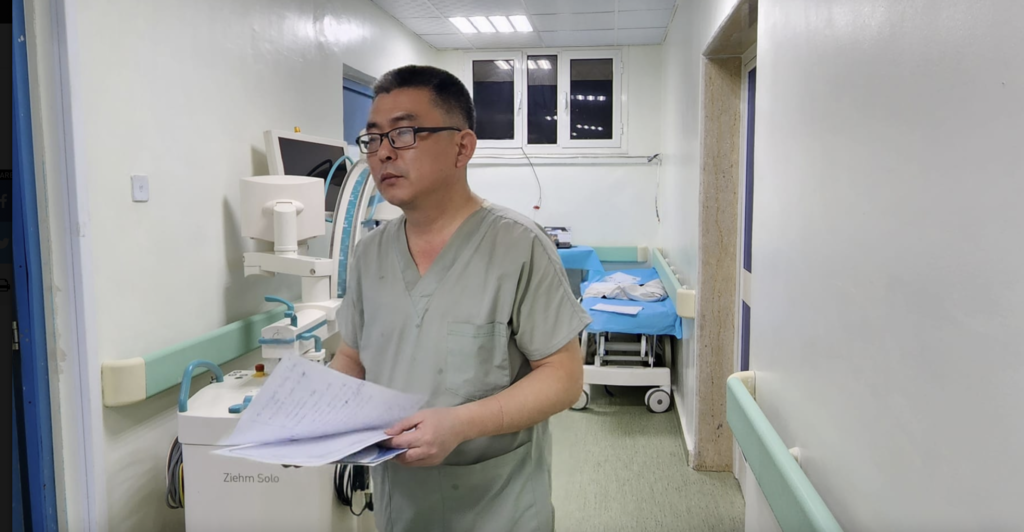A team of North Korean medical workers that arrived at a Libyan hospital earlier this year is now actively carrying out surgeries, treatments and consultations, according to the hospital, despite U.N. sanctions on DPRK laborers abroad.
Martyr Attia Al-Kaseh Teaching Hospital in Kufra city uploaded photos on social media last week that show the North Korean doctors receiving patients and even assisting with “orthopedic operations.” Many of the images show graphic surgeries as the DPRK medical workers stand next to the operating table.
The hospital first announced the arrival of the 38-member team in January, a year and a half after North Korea’s Ambassador to Tripoli Ju Jin Hyok told Libya’s health minister that the DPRK “will seek to restore medical cooperation as soon as possible.”
The hospital started training the North Korean doctors in mid-January, according to its social media page, assigning at least one DPRK staff member to each shift to get them up to speed with their new Libyan colleagues.
Libyan hospitals relied heavily on North Korean medical professionals before the country fell into a lengthy civil war in 2014. “Many village hospitals in the South do not have doctors because we rely on North Korean doctors [who have left],” one Libyan hospital wrote on its Facebook page in 2016.
According to the World Health Organization’s (WHO) latest health care sector analysis, Libya has “severe deficiencies in the mix and distribution of skills across the geographical regions,” worsened by “compromised professionalism, integrity, leadership and discipline.”
In particular, the WHO highlights that Libya faces a shortage of doctors in the country’s south. Martyr Attia Al-Kaseh Teaching Hospital is located in southern Libya, suggesting that the North Koreans were dispatched there to help alleviate staff shortages.
North Korean nationals have remained active in several African countries despite 2017 U.N. Security Council sanctions requiring countries to repatriate DPRK laborers earning income abroad by the end of 2019. North Korea’s strict COVID-19 border controls have also prevented its own citizens from entering the country for the last three years.
But while sanctions on DPRK workers aim to curtail a source of funding for Pyongyang’s weapons programs, one expert previously told NK News that North Koreans trapped abroad are also likely looking for ways to support themselves and could provide valuable medical assistance.
